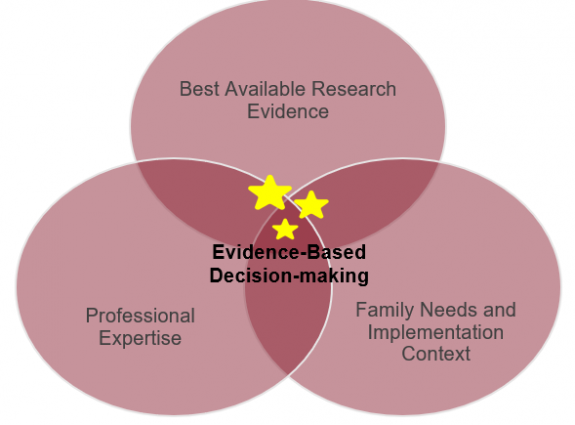Colorado Lab Training: Effective Leadership through Data

A new Colorado Lab training supports government and community-serving professionals to grow their understanding in the use of data for decision-making. The training, created by Drs. Courtney Everson and Lauren Gase, Senior Researchers/Project Directors with the Colorado Lab, was delivered most recently to the Rocky Mountain Early Childhood Conference and to the Whole Child Consultative Roles Conference.
“Our partners show deep commitment to using data to drive outcomes. They also have expressed barriers to making this commitment a reality, such as not having tools to be efficient in data use or not knowing how to blend evidence with other real-world factors,” Dr. Everson said. “We created this training to support professionals in moving their commitment to data into effective action.”
The training supports decision-makers in understanding Evidence-Based Decision-Making (EBDM) – the sweet spot between the best available research evidence, decision-makers’ expertise, and community needs and context. This framework recognizes that research evidence is not the only contributing factor to decisions professionals make. Other equally important context factors should be considered, such as available funds, the needs of the people being served, timeline, cultural values, community priorities, and the feasibility of implementation. EBDM applies to both big strategic decisions and day-to-day operational decisions.

In the training, Drs. Everson and Gase walked participants through the Ask-Acquire-Apply-Assess approach to help them integrate research evidence in efficient and effective ways. Using this cycle can strengthen a data-informed approach for effective leadership.
- Ask: Define what you are looking for and why. What are my goals and how can data help?
- Acquire: Find and gather research evidence. Where should I look to find research evidence and how credible is the source? How can I gather new evidence?
- Assess: Assess the quality of the evidence. Are the findings based on quality research?

- Apply: Consider the research evidence in context. How do I pair evidence with other factors like funding and family voice to make decisions?
To learn more about this approach or to explore training opportunities, please contact Dr. Courtney Everson.